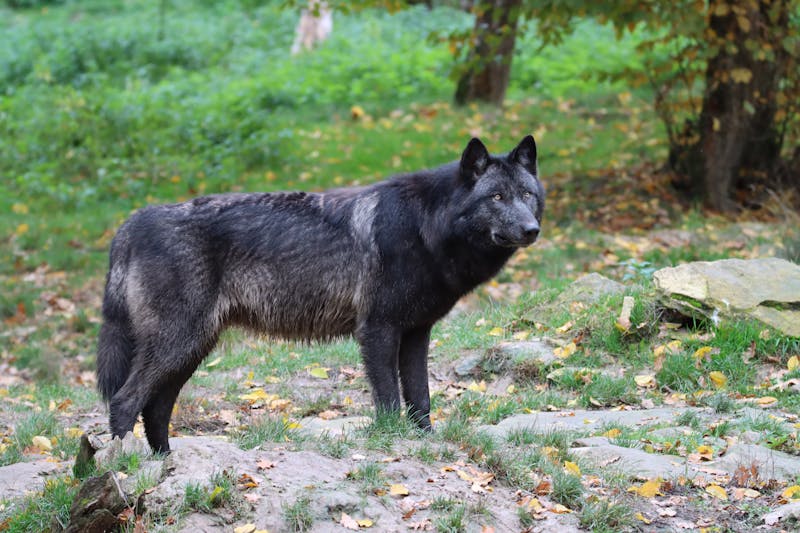Unexpected Discovery: Rare Black Wolves Spotted in Poland
In a surprising and unexpected discovery, a wildlife conservation group in Poland, who were conducting research on the country’s beaver population, has reported an encounter with two rare black wolves. The wolves were spotted via video footage captured in a forest during research conducted last year.
The accidental encounter with these elusive creatures, which are known for their rarity and stealth, has been hailed by wildlife conservationists as an important find. Despite being focused on beavers, the research team were quick to recognize the significance of their accidental discovery.
A Rare Sight
Black wolves, also known as melanistic wolves, are a rare variant of the gray wolf. This strain of wolves carry a gene mutation that gives them their distinctive black coat. This is a similar genetic trait found in black panthers (melanistic leopards) and black squirrels. It is estimated that less than 10% of the world’s wolf population are black, making the sighting in Poland particularly rare and exciting for the wildlife conservationists.
“It was an incredible moment when we first saw the footage,” said Dr. Marek Jakubowski, one of the research team members. “We were looking for evidence of beaver activity when suddenly these two magnificent creatures appeared on the screen. It was an experience we will never forget.”
Conservation Efforts in Poland
The discovery was made in the Bialowieza Forest, one of the last and largest remaining parts of the immense primeval forest that once covered much of Europe. The forest, straddling the border between Poland and Belarus, is home to an impressive biodiversity, and is recognized as a UNESCO World Heritage site.
Poland has been making significant efforts in wildlife conservation over the past decades. The country has a number of conservation projects underway, targeting a variety of species including the European bison, the White-tailed eagle, and of course, the beaver. The sighting of the rare black wolves underscores the success of these ongoing conservation efforts.
The protection of wolves in Poland has a contentious history. They were hunted to near extinction during the 20th century, but strict protection laws introduced in the late 1990s have helped the population to recover. The sighting of the black wolves gives hope to conservationists that the wolf population in Poland is not just surviving, but also diversifying.
Implications of the Discovery
The sighting of the black wolves is more than just a thrilling encounter for conservationists. It could have significant implications for future research and conservation strategies. The discovery might encourage further study into the genetic diversity of the wolf population in Poland and perhaps even inspire efforts to protect and increase the population of these rare black wolves.
“This discovery is definitely a highlight of our careers,” said Dr. Jakubowski. “It’s not just about the thrill of seeing these rare animals; it’s about what this means for our understanding of the biodiversity in this region and how we approach conservation in the future.”
For now, the exact location of the black wolves remains undisclosed to protect the creatures from potential threats. In a world where wildlife is facing increasing pressures from habitat loss, climate change, and human activity, the discovery of these rare black wolves offers a glimmer of hope for the future of wildlife conservation.















